September 10, 2024 | 22:34 GMT +7
September 10, 2024 | 22:34 GMT +7
Hotline: 0913.378.918
September 10, 2024 | 22:34 GMT +7
Hotline: 0913.378.918
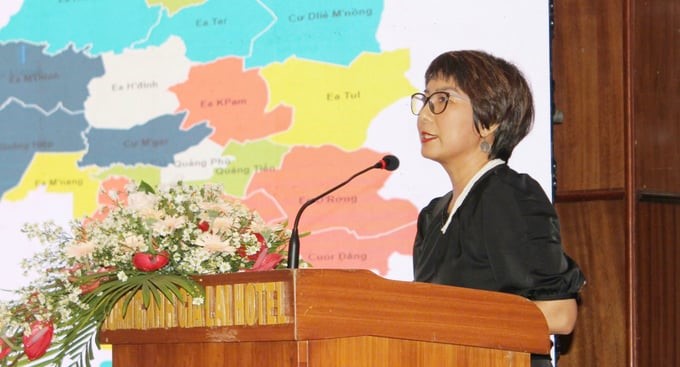
Ms. Mac Tuyet Nga, Senior Manager of the IDH Organization's Landscape and Coffee Program, spoke at the conference. Photo: IDH.
Recently, the Ministry of Agriculture and Rural Development, in collaboration with the Gia Lai Provincial People's Committee, organized a preliminary conference on 2 years of implementing the pilot project to build standard agricultural and forestry raw material areas for the 2022–2025 period. At the conference, Ms. Mac Tuyet Nga, Senior Manager of the Landscape and Coffee Program of the IDH Organization (headquartered in the Netherlands), said that in the 2016–2023 period, the unit has developed sustainable and emission-reducing landscapes on coffee trees in the Central Highlands provinces. The program has three main goal groups, including sustainable production, conservation, and social security.
To be more specific, sustainable production aims at the goals of reasonable water use, lawn and crop quality management, IPM and reasonable use of pesticides, nutrient management of farming land, and raising awareness for farmers.
In the conservation category, IDH organizes human resource training, agroforestry production, forest planting and protection, and protection of land and water resources. Regarding the goal of social security, IDH aims at labor safety, a safe living environment, gender enhancement, and increased income for people.
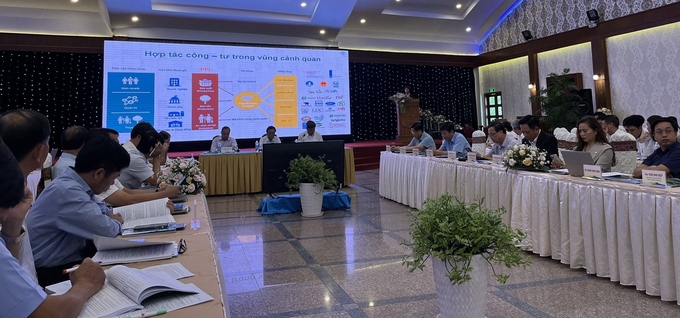
IDH presented a presentation at the preliminary conference on 2 years of implementing the pilot project to build standard agricultural and forestry raw material areas for the 2022–2025 period.
During the 2016–2018 period, IDH deployed the program in 65 communes by piloting a garden-level intervention model. In the 2019–2020 period, pilot implementation was at commune and commune cluster levels with a land area of about 20,000 hectares in the Central Highlands.
In the 2021–2025 period, IDH will replicate the district-level model with an area of 180,000 hectares of farming land under the management of PPI Compact; 340,000 hectares of forests and basins under the management of PPI Compact; and 145,000 hectares managed sustainably with low emissions. In particular, the income of 55,000 farmers will be improved by 15%, and 40,000 hectares of land will be restored and improved. Especially, 4 districts will implement EUDR compliance solutions. The goal is that 50% of the coffee area in the Central Highlands will be verified as responsible production in 2025, and 80% of the Central Highlands' output of coffee meets the export requirements of the European market.
The IDH Organization proposes a strategy to reduce greenhouse gas emissions, which includes 100% responsible and low-emission production by 2040.
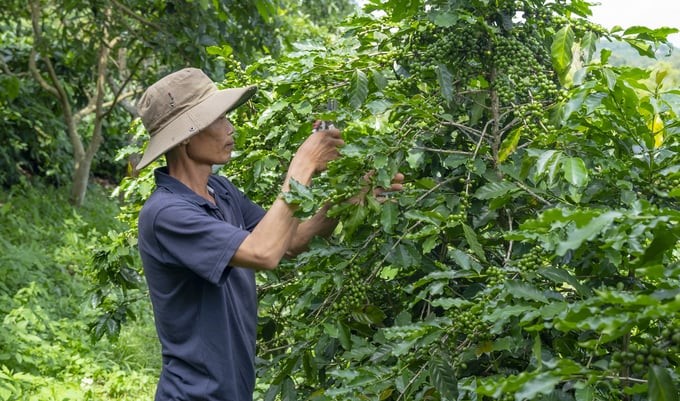
In the 2016–2023 period, the program reached 145,000 hectares of sustainable and low-emission coffee farming and well-protected 230,000 hectares of forest. Photo: IDH.
According to Ms. Mac Tuyet Nga, Senior Manager of the IDH Organization's Landscape and Coffee Program, in the 2016–2023 period, the program reached 145,000 hectares of sustainable and low-emission coffee farming and well-protected 230,000 hectares of forest. The program has helped reduce irrigation water by 20%, increase surface water by 10%; reduce the amount of carbon emissions by 20%; reduce production costs by 10%; and reduce the use of pesticides on the banned list by 98%, thereby increasing income for participating households by 15%.
"In the coming time, IDH will pilot EUDR in PPI Compact areas and replicate it in other localities according to the process of building a database of growing areas; reviewing and developing forest maps; building a traceability system; communicating about EUDR; and piloting a mechanism to share information and design solutions to ensure livelihoods for farmer households," Ms. Nga informed.
Translated by Thu Huyen
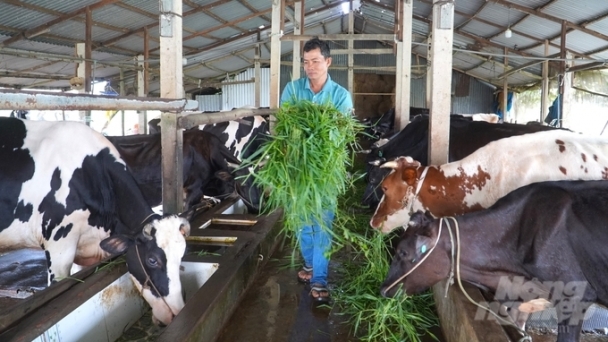
(VAN) To achieve emissions reduction targets by 2030, global investment in agriculture must reach $260 billion per year – 18 times the current investment level.
/2024/09/10/0753-1-154847_826.jpg)
(VAN) With rapid development, the tourism industry is also facing major environmental and social challenges.
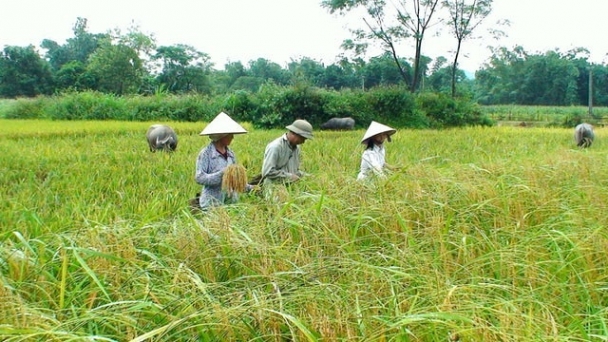
(VAN) During a panel of Regional Dialogue ‘Realizing the vision of low-emission rice across landscapes’ on September 9, representatives from four hardcore private sectors discussed solutions on value chain perspectives and sustainable rice.
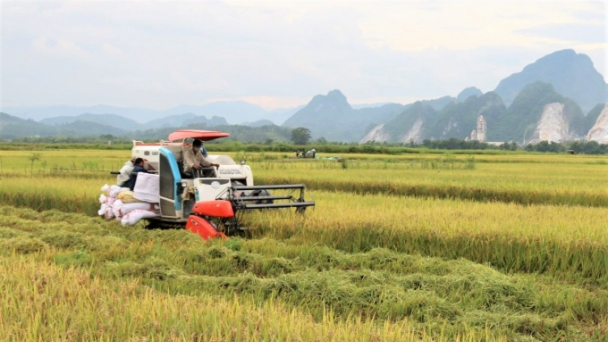
(VAN) Middle-income countries are the primary drivers of agri-food emissions, responsible for nearly two-thirds of the total. However, they also hold three-quarters of the global cost-effective mitigation opportunities, shared Alexander Lotsch (World Bank).

(VAN) Besides the advantages in land, climate and water, Thai Binh province has always paid attention to technical advances, invested in irrigation and drainage infrastructure and upgraded on-farm transport system to facilitate production and trade.

(VAN) Dr. Cao Duc Phat - Chair of the International Rice Research Institute (IRRI), presents the goals and obstacles to producing low-emission rice in Vietnam and globally.
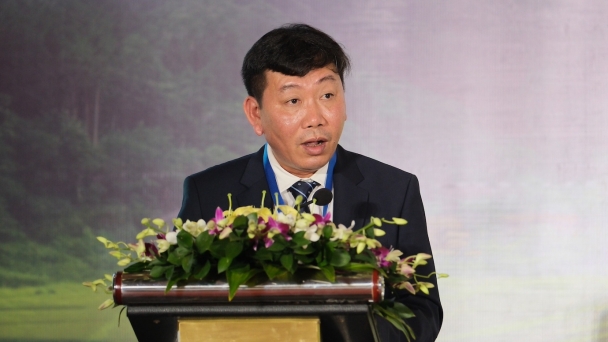
(VAN) On September 9, the Ministry of Agriculture and Rural Development (MARD) and the World Bank organized a regional forum themed ‘Realizing the vision of low-emission rice across landscapes.’